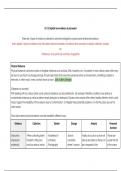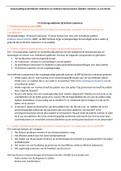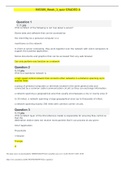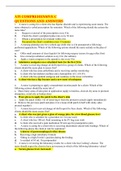College aantekeningen
Criminology Unit 3 - 1.3 - Explain how evidence is processed
- Vak
- Instelling
Criminology Unit 3 - 1.3 - Explain how evidence is processed These notes helped me achieve 100% in the Unit 3 exam! Make sure to put these into your own words :)
[Meer zien]






